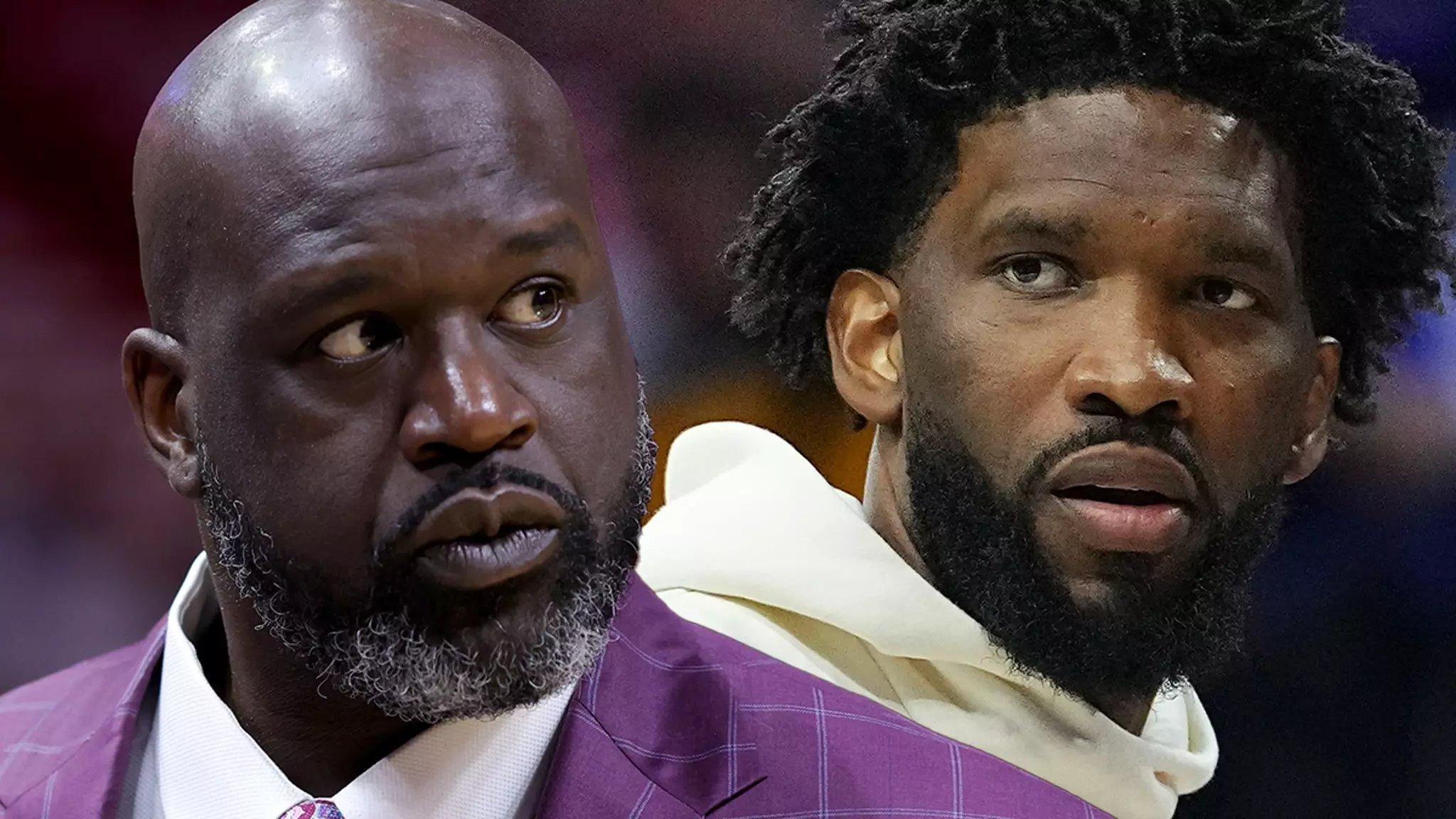In a notable exchange regarding the competitive spirit in the NBA, Shaquille O’Neal did not hold back in his critique of Joel Embiid. O’Neal, who is celebrated as one of the greatest centers in basketball history, has expressed concerns about Embiid’s reluctance to participate in consecutive games. After Embiid missed Philadelphia 76ers’ season opener against the Milwaukee Bucks, the discourse spiraled, particularly as the reigning MVP declared he might avoid back-to-back games for the foreseeable future. O’Neal deemed this mindset indicative of someone who may not possess the grit necessary to thrive at the highest levels of the sport.
With the backdrop of modern NBA culture shifting toward player management and injury prevention, O’Neal’s comments confront a pressing issue: the essence of what it means to be a competitor in today’s game. While player safety is undoubtedly important, the notion of sitting out simply out of preference raises questions about an athlete’s commitment to their team and the sport itself. Shaq argued that truly great players, like himself during his prime, emerged ready to face challenges game after game. From 1992 to 2011, he felt it was imperative to fight for dominance on the court, which serves as an enlightening comparison to Embiid’s approach. O’Neal’s viewpoint echoes a broader sentiment among NBA legends who believe that a player’s desire to win should override personal convenience.
An interesting aspect of this critique lies in the comparison of Embiid’s play style and his past achievements. O’Neal noted how Embiid demonstrated his capabilities last season when he exploded for a staggering 70-point game, showcasing his talent when the moment called for it. This connection raises the question: why exhibit such prowess intermittently while opting out during routine games? Shaq’s assertion that Embiid could average 40 points if he maintained that level of performance underscores a critique not merely about participation but about the athlete’s mental approach to the game.
The NBA’s current investigation into Embiid’s absences hints at the league’s growing concern over player participation policies, aimed at ensuring competitive integrity by preventing healthy players from resting unnecessarily. It invites discussions among fans, analysts, and other players about the balance between individual player welfare and the overarching need for teams to field their best lineups consistently. Embiid’s situation, combined with Shaq’s assertive stance, has sparked a wider dialogue about how modern players can reconcile their personal management with their roles as athletes tasked with delivering results.
As this conversation unfolds, it is evident that O’Neal’s comments are not just about a single player; they challenge the very fabric of what it means to be a competitor. Shaquille O’Neal stands as a beacon for the values of hard work and resilience that define the spirit of the NBA. For players like Joel Embiid, the drive to compete, regardless of the physical toll, may not only define their legacy but also shape the future narratives of basketball. The tension between personal desire and professional obligation continues to be a hot-button issue, revealing much about the evolving landscape of sports today.

